Oceania is truly a country suitable for Eco-Friendly Travel Destinations in Oceania for Nature Lovers, where nature lovers would never run out of spectacular destinations—from tropical rainforests or sandy stretching beaches to mountainous terrains, coral reefs, and much more. People nowadays try to search for an option that will allow them to minimize their negative environmental impact, which is why green tourism in Oceania is gaining popularity. This is something that one can see in the Australian and New Zealand territories and numerous little-known islands of the Pacific region. This guide will explain several eco-tourism spots in Oceania that you should visit when planning your next adventure that is adventurous, unique, safe, and full of fun.
Here are the Top 5 Eco-Friendly Travel Destinations in Oceania for Nature Lovers
1. Lord Howe Island, Australia
Australia is the top Eco-Friendly Travel Destination in Oceania for Nature Lovers, It is situated in the Tasman Sea, approximately 600 kilometers northeast of Sydney, Australia, and has been listed by UNESCO as a World Heritage site and perhaps one of the most undeveloped islands in the world. The island limits the number of people who can be allowed to visit at a given time to only 400 people, which makes the island have the best attributes of sustainable travel in Australia. Lord Howe Island has a variety of vegetation, and the vast majority of the island’s territory, about 75% of it, is protected from human interference and encroachment by natural forests.
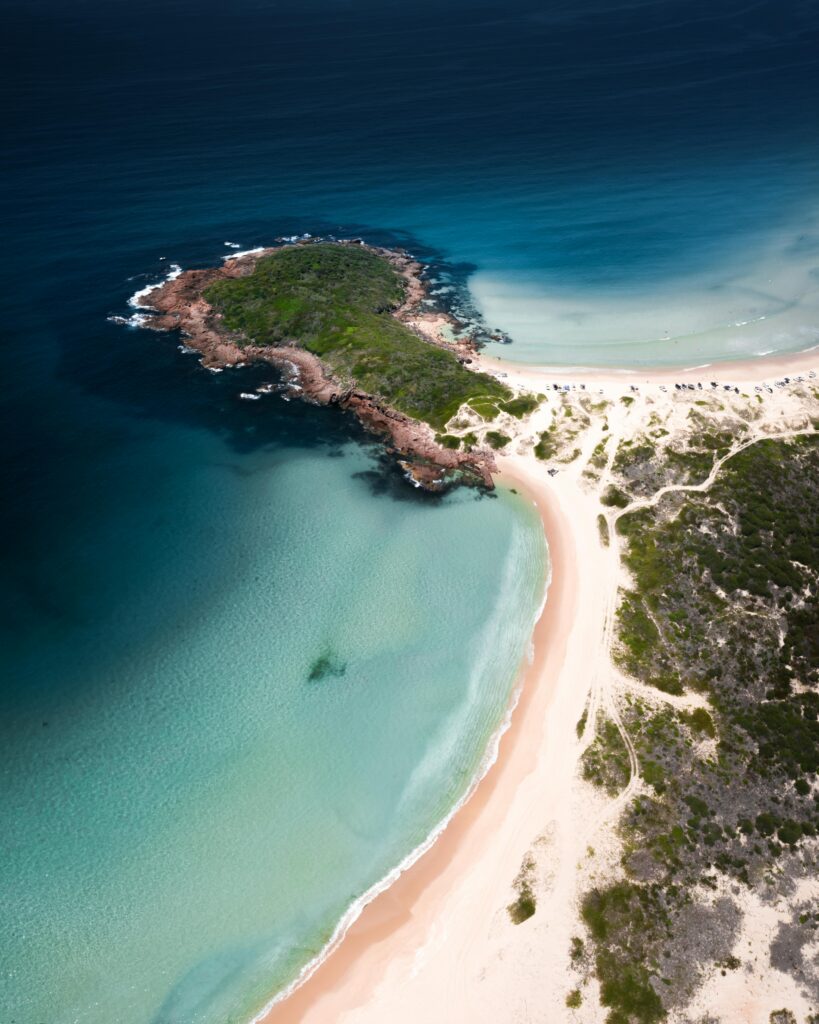
Why It’s Eco-Friendly
- Special conservation procedures for Lord Howe Islands executives themselves signify that the area enjoys severe protective legislation.
- It adopts environmental management practices, uses energy generated from renewable sources, and limits the number of vehicles used.
- Sustainability in fishing and the protection of coral reefs through its marine park is another.
Things to Do
- One of the eco-friendly hikes on the island is the Mountain Gower hike, in the Oceania region.
- Go snorkeling in the shallow waters of Lagoon Beach to see styles of coral.
- This involves birdwatching on Ned’s beach, which has some of the most endangered seabird species.
Eco Tip : When visiting, choose an eco-certified hotel and accommodation such as the Capella Lodge, which meets lots of sustainability criteria.
2. Abel Tasman National Park, New Zealand
New Zealand has always been stunning for its mixture of landscapes, and Abel Tasman National Park in the South Island shows a unique example of sustainable tourism. It has golden sand beaches, clear bays, and luxurious forests, and from the perspective of an eco-tourism site, this area has come up with measures to protect its resources and has activities that showcase the park’s resources…
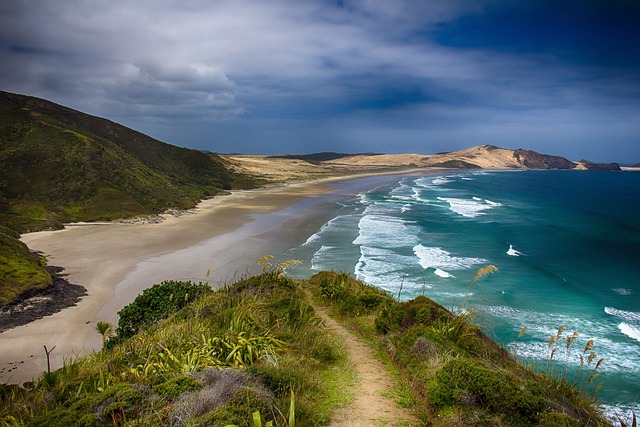
Why It’s Eco-Friendly
- The park forms part of the New Zealand Great Walks that seek to encourage sustainable tramping and camping.
- Independent travel companies provide services of low-impact sea kayaking and leisurely wildlife viewing eco-tours.
- There is a continuing conservation activity in the park aimed at controlling the alien species and bringing back indigenous ones.
Things to Do
- Experience kayak trips to the coast with certified tourist routes, attend the picturesque coves, and watch seals in their natural environment.
- Experience the Abel Tasman Coast Track, New Zealand’s most famous trail; stay in Great Sleuth’s environmentally friendly huts.
- Volunteer for a conservation program if you want to be of service in seeing to it that the local wildlife is protected.
Eco Tip: Should you decide to have a picnic while viewing the park, consider going on a zero-waste rampage.
3. Niue, South Pacific
Although Niue is a small island country, it may not be as popular as others, but now it has become the most developing country in terms of eco-tourism in Oceania. Niue is an island of crystal-clear water surrounded by reefs with beautiful tropical forests; therefore, Niue is one of the many countries that have embraced the concept of sustainable tourism.
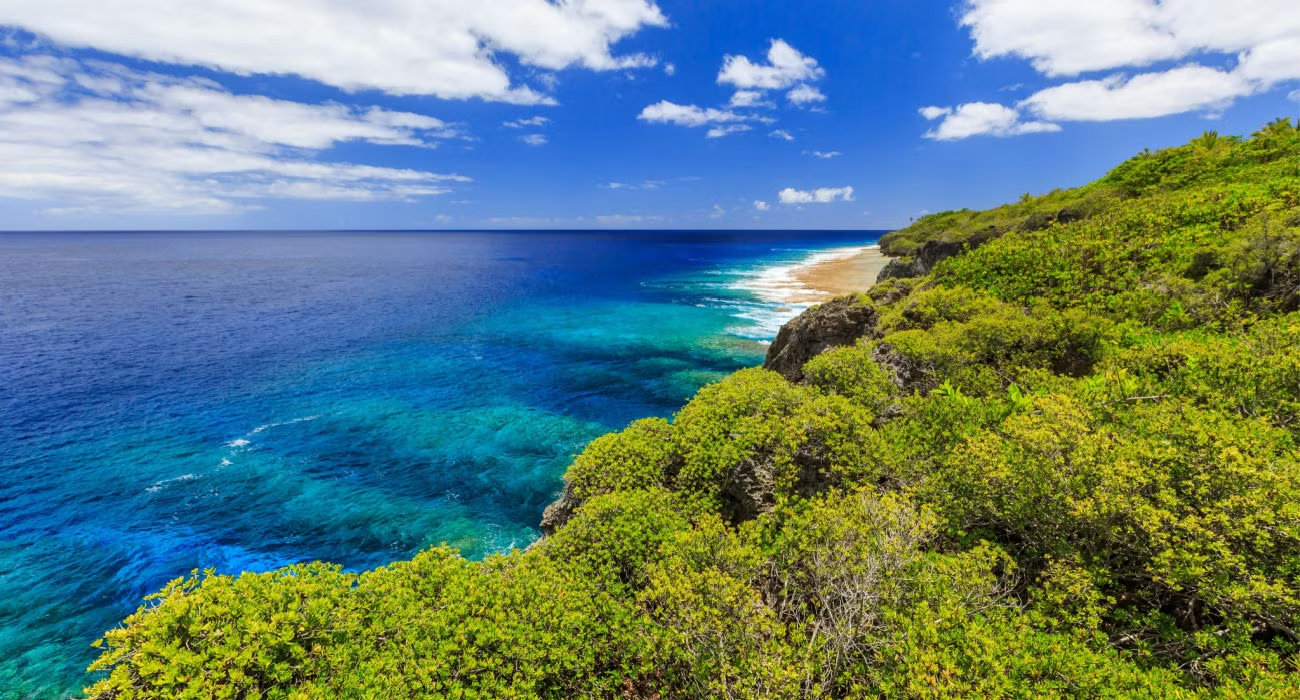
Why It’s Eco-Friendly
- Niue has planned to become the first dark sky nation in the world, which is wholly dedicated to saving the night sky from human interference.
- This has set measures that have helped the government of the country to come up with measures to protect its coral reefs and adopt a sustainable fishery.
- To attain energy sufficiency for the island, renewable energy projects are ongoing.
Things to Do
- Stroll through park Huvalu Forest Conservation Area, where activity will be directed at examining the park’s flora and fauna.
- Swim or snorkel among the beautiful coral reefs: friendly divers make sure that the turtles will not be harmed.
- Go to the nature reserve of Tomb Point, an offbeat location that tourists can use to tour the natural environment as well as watch birds without harming nature.
Eco Tip: Spend a night in Matavai Resort, which pledges to practice sustainable tourism by, for instance, using rainwater & solar power.
4. Taveuni Island, Fiji
He said Taveuni Island has been nicknamed the Garden Island of Fiji due to its popularity in the ecotourism niche. Boasting rich vegetation and a variety of great bio-carriers, ranging from rainforests through waterfalls to corals, the island is reckoned as one of the best places to visit in Oceania while primarily working to make as little impact on their surroundings as possible. Measures have been taken to conserve it and preserve its ecosystem through the provision of sustainable tourism and therefore is ideal for those interested in nature and environmentally friendly regional destinations.
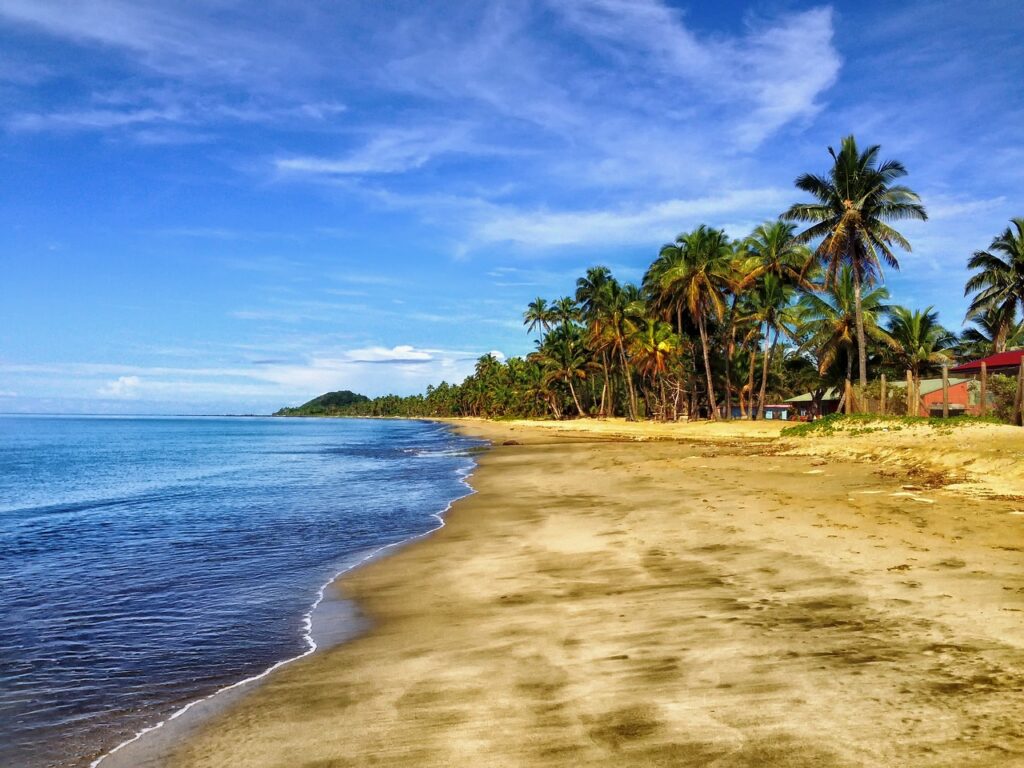
Why It’s Eco-Friendly
- Tourism accommodations such as eco-lodges in Taveuni practice solar energy, and the farms are organic.
- The island also boasts Fiji’s first Ramsar Wetland of International Importance to protect its mangroves and wetlands.
- More than 90% of the locals, tour operators, and other people interested in reef conservation understand and provide efforts toward the conservation of natural resources in Taveuni, including the reef.
Things to Do
- Take the short walk to Bouma National Heritage Park and hike through the jungle using environmentally sensitive paths to waterfalls and viewpoints.
- In addition to that, for aqua lovers, you can go snorkeling or explore the Rainbow Reef, which is one of the most spectacular coral reefs of the South Pacific.
- Get involved in a local conservation project to assist in the tree planting and care of the wildlife that inhabits the island.
Eco Tip: Choose Taveuni Island Resort & Spa; this hotel is associated with solar energy, and the hotel itself actively uses local principles of sustainable tourism.
SEE ALSO
- Japan 10 Days Tour | Complete Guide
- Top 8 Islands to visit in Maldives
- 9 Best Places to visit in France
5. Norfolk Island, Australia
Situated between Australia and New Zealand, Norfolk Island is another Oceania destination promoting the concept of eco-tourism. Due to the natural cliffs, forests, and clear sand coastlines, the island has a primary focus on maintaining an untouched natural ecosystem. Due to its small population and the cautious approaches towards tourists’ attractiveness, Norfolk Island can be considered one of the most sustainable destinations in Oceania.
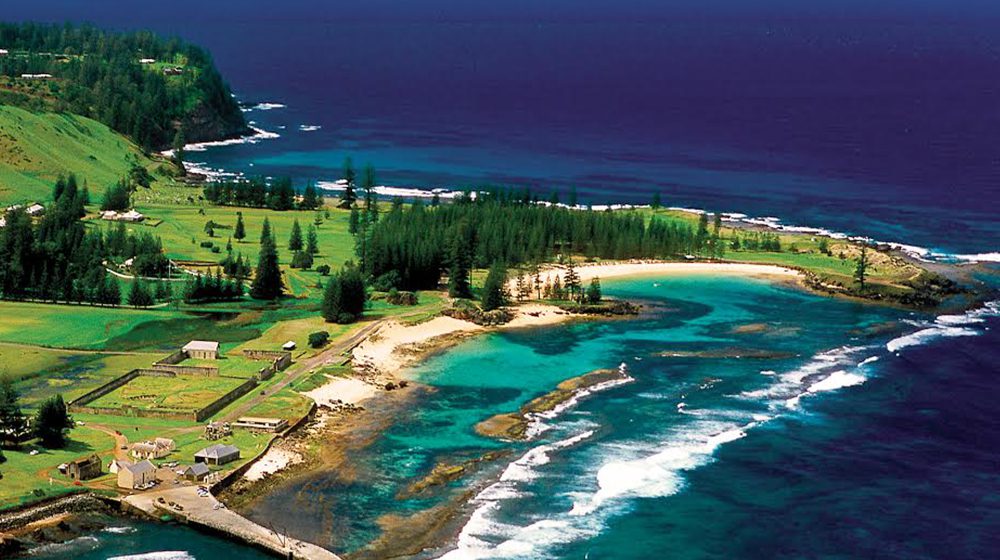
Why It’s Eco-Friendly
There are several measures taken regarding waste management on the island; recycling and composting are the main activities provided there.
There are Norfolk Island green accommodations and Norfolk Island green business certifications for accommodation and others that are environmentally conscious.
These forms of energy are being deployed to discourage the usage of fossil energy sources.
Things to Do
Travel through the Norfolk Island National Park, where all walking paths maintain minimal disturbance to nature.
The protected lagoon of Emily Bay provides both swimming and snorkeling activities and stunning natural views around Norfolk.
Tourists can explore sustainable farming locations, which allow visitors to study organic farming methods alongside local food production systems.
Eco Tip: Visit Bounty Lodge and experience the true meaning of environmentally friendly lodges with the provision of rainwater and an ecological waste disposal system.
Why Eco-Friendly Travel in Oceania Matters
When climate change impacts become more obvious, eco-tourism is a critical option for maintaining the environment. When selecting travel destinations, it is possible to focus on the tendency of saving the environment of Oceania and traveling at the same time. It is a piece of the incredible puzzle that can be made by enjoying a trip to Oceania without harming the environment and getting acquainted with the principles of sustainable tourism to maintain the ecosystems in the country for the following generations.
More Travel Guides For World Tour
Thanks for looking! I hope this guide gave you some ideas for Eco-Friendly Travel Destinations in Oceania for Nature Lovers | A Complete Tour Guide
Create a budget planner for your trip to Europe by understanding this blog. Highly suggest reading this Europe Budget Planner
Don’t forget to bookmark my blog for more travel guides coming soon!

